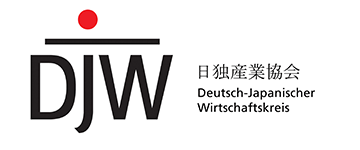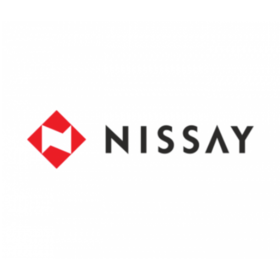Takeshi Sugiyama, Associate Professor, University of Hyogo
This article was first published in DJW News 2/2016.
My research interests focus on the intersection of urban, regional and industrial policy from a geographical perspective and in particular, urban and industrial agglomeration. This includes research on the mutual relationships between communities and associations such as those of governments, economic organizations, firms, as well as associations which provide opportunities for cross-industrial/sectional interaction. From this perspective I have intensively conducted a research on Japanese firms that have moved abroad and their agglomeration. Putting all the research results together, I have published a paper titled “The Localization of Japanese Multi-national Firms in Germany and the Basis for a ‘Glocal’ Community” (in Japanese). In this article, I would like to briefly introduce the summary and conclusion of the pa-per, followed by some discussion points, significance of the research and its future applicability from a geographical point of view In the above mentioned paper, I researched how Japanese firms gathered in places like Düsseldorf and Munich were proceeding with localization from a geographical perspective. During this research in Germany I received guidance and instruction from all those concerned, especially the Japanese-German Business Association (Deutsch-Japanischer Wirtschaftskreis or DJW) and the Japanese Chamber of Industry and Commerce (JIHK) Düsseldorf. As a result of my research, the three points following below became clear. Although some of them are too obvious to all DJW Newsletter readers who are engaged in Japanese-German business in Germany, from the standpoint of someone specializing in geography however, each of these three points was extremely interesting.
1) “Glocal elements” – In the communities that are providing assistance to Japanese firms in Germany one can observe a ‘glocal’ character. ‘Glocal’ is a geographical composite word indicating that globalization and localization are proceeding at the same time and in parallel. While Japanese firms located in Germany are planning to develop projects aimed at, for example, the whole of Europe, in the particular cities where they are based, such as Düsseldorf, one comes across many instances where local level information exchange have come into being. Japanese firms have been absorbed into this ‘urban agglomeration’ (the terminology will be explained below) where such information is easily exchanged. This is suggested by the fact that Germany has the highest agglomeration of Japanese companies in Europe (see Fig. 1).
2) “Network building” – Japanese firms in Germany are striving to build cross-industrial/sectional networks not only within Japanese networks but also in business net-works between German and Japanese, and seeking to gather information about other countries besides Germany. Assistance is being provided in response to these needs of the firms. For example, the networking activities of DJW such as the ‘Asa no kai’ (Breakfast Meeting) and the ‘DJW kai’ (DJW Business Dinner) could be seen as a prime example of this.
3) “Assistance to Japanese firms” – In providing assistance to Japanese firms, mutual understanding – not only towards economic but towards cultural factors, has been emphasized. For example, in the ‘Japan Day’ celebration held every year in Düsseldorf, a relationship of mutual trust has been forged between the various organizations from the German and the Japanese side, having collaborated together in the process of preparing for the event.
Moreover various organizations, including DJW, play an important role in helping Japanese firms to understand the laws and customs of Germany and Europe. And in the paper mentioned above, even though it is still an interim report and my research goes on, I concluded that, “The localization of Japanese firms in Germany and their development of global operations are being advanced through ‘glocal’ communities based on a combination of a territorial system and culture.”
Looking at these conclusions, all those of you who are involved in the activities of the DJW may well get the impression that these are self-evident conclusions that are hardly novel. However, within the academic discipline of Japanese economic geography, the many facts that were revealed by this current research are full of surprises. Here I would like to point out two of the reasons for that.
The first of these is a point related to the term ‘urban agglomeration’. ‘Urban agglomeration’ is a geographical term that refers to a business environment where an agglomeration of offices and many different varieties of industries from many different sectors are mixed together. However, the majority of the research on the agglomeration of Japanese firms that have moved abroad to other countries fall into the category of industrial manufacturing agglomeration and the discussion focuses exclusively on the agglomeration of the manufacturing industry and factories. Especially in recent years research about (Japanese) factories “going local” in other Asian countries has flourished. Of course for Japan, discussing the industrial manufacturing agglomeration and its relation to Asia is extremely important. On the other hand, understanding and analyzing the factors, why Japanese firms concentrate in particular cities in Germany, needs discussion from the perspective of the agglomeration of ‘centralized sales bases´ together with the character of the local communities, in other words, ‘urban agglomeration.’ One could say that the approach in Germany can be seen as one example of advanced ‘urban agglomeration’ that argues for a better relationship between the host society and the Japanese community.
The second point is that through this research we gained knowledge on how to apply and put to practical use the experience gained in Düsseldorf and other places to Japan. My university is located in Hyogo Prefecture, and I am also concerned with assisting foreign firms setting up business in Kobe. In Kobe a ‘cluster policy’ has been instituted in recent years and a ‘medical industry city’ is in the process of being created. Bit by bit the number of foreign firms setting up there has been increasing. On the other hand, Kobe is a city that emphasizes coexistence with other cultures and there are a large number of organizations related to foreign countries. But, as far as I have ascertained, the former economic elements and the latter cultural elements can be seen as being separated. Looking at the example of Germany suggests that even in Japan it could be important to create improved localization assistance and a business environment in which both economic and cultural elements are unified. I am considering what I should advocate as someone working at a university in Hyogo Prefecture where such an international city as Kobe is located. The City of Düsseldorf is a harbor city that has supported the inland water transport of the ‘Ruhr Industrial Area’ which is famous even in the geography textbooks of Japanese middle and high schools. Drawing on its example and applying its approaches to Kobe, one of the biggest harbor cities of the ‘Hanshin Industrial Area,’ is something that would be highly valuable.
The above mentioned paper which I recently published is still an interim report. The work that remains for this re-search is, after conducting further dialogue with people whom I could not meet with this time, to refine and elaborate on all these discussion points and conclusions. I will continue my research while receiving lessons and guidance of many different kinds from everyone involved in Japanese-German relations.
* Please find the complete study report in Japanese here.
http://dlisv03.media.osaka-cu.ac.jp/infolib/user_contents/kiyo/DBb1160204.pdf


























